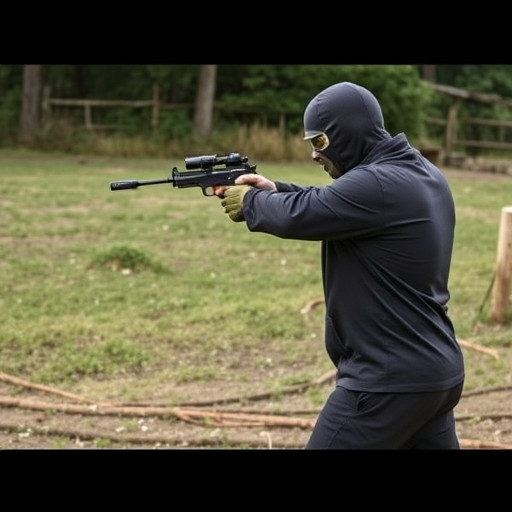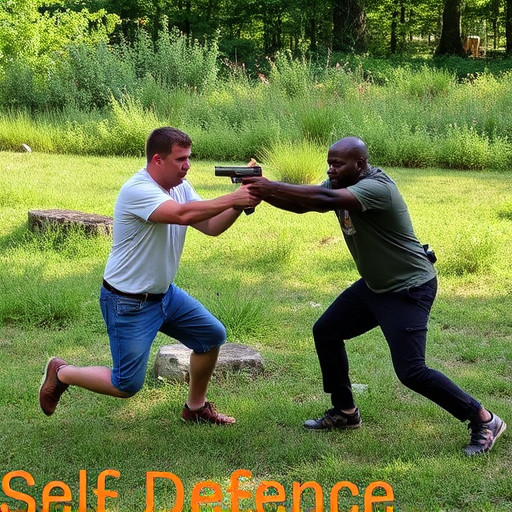Self-Defense Stun Guns on Campus: Legalities & Safety for Students
College students considering self-defense stun guns must balance personal safety with legal and inst…….
College students considering self-defense stun guns must balance personal safety with legal and institutional constraints. US states vary in concealed carry regulations, so checking local laws is crucial before obtaining a permit. Many colleges have their own weapon policies, requiring permits or specific storage guidelines for stun guns to avoid legal issues. Proper training, including usage techniques and de-escalation strategies, along with regular maintenance and secure storage, ensures safe and responsible use of self-defense stun guns on campus.
“In today’s diverse academic landscape, self-defense options for college students are gaining attention. ‘Concealed Carry Stun Gun Regulations’ explores the evolving legal frameworks surrounding stun guns on campus, offering a comprehensive guide for students considering this personal safety measure. From understanding concealed carry laws to weighing benefits and navigating legal implications, this article equips readers with insights into self-defense stun guns tailored for college environments.”
- Understanding Concealed Carry Laws for College Students
- Benefits and Considerations of Carrying a Stun Gun on Campus
- Legal Implications and Safety Guidelines for Self-Defense Stun Guns
Understanding Concealed Carry Laws for College Students

For college students considering self-defense options, understanding concealed carry regulations is a crucial step. Many states have specific laws regarding who can carry a stun gun and where, with certain restrictions for individuals on campus. College students should first check their state’s legislation to determine if they qualify for concealed carry permits. Some states allow campus carry with certain types of weapons, including self-defense stun guns, while others restrict carrying firearms in educational facilities.
Knowing the local laws is essential as it ensures compliance and provides a safe environment for all students. Students interested in carrying a stun gun for self-defense should also familiarize themselves with campus policies, as many institutions have their own regulations regarding weapons, even if state law permits concealed carry. This proactive approach to understanding both state and institutional guidelines empowers college students to make informed decisions about personal safety while adhering to legal frameworks.
Benefits and Considerations of Carrying a Stun Gun on Campus

Carrying a self-defense stun gun on campus offers several advantages for college students, especially those attending schools in areas with high crime rates or lack adequate security. These compact devices provide an extra layer of protection and peace of mind, allowing students to feel more secure while walking alone at night or navigating through deserted buildings. Stun guns are designed to incapacitate an attacker temporarily, giving the user time to escape and seek help. This can be a valuable tool in situations where conventional self-defense methods might not be feasible or effective.
However, there are also considerations to keep in mind. Some campuses have strict policies regarding personal weapons, including stun guns, which may require students to obtain special permits or follow specific storage guidelines. It’s crucial for students to understand and comply with these regulations to avoid legal consequences. Additionally, proper training is essential for safe and responsible stun gun carrying. College students should familiarize themselves with local laws, learn how to use the device effectively, and consider joining self-defense workshops or classes to enhance their overall safety awareness.
Legal Implications and Safety Guidelines for Self-Defense Stun Guns

Self-defense stun guns, also known as electroshock weapons, are becoming increasingly popular among college students seeking effective personal safety measures on campus. However, it’s crucial to understand the legal implications and safety guidelines surrounding their use. The legality of carrying self-defense stun guns varies significantly from state to state in the US, with some allowing their concealed carry while others restrict or prohibit them entirely. College students considering this option must research and comply with local laws to avoid legal repercussions.
Safety is paramount when it comes to any type of self-defense tool. Stun guns should only be used as a last resort when facing an imminent threat. Users should receive proper training on their use, including understanding the range, activation mechanisms, and de-escalation techniques. Regular maintenance and storage in a secure location are also essential safety guidelines to ensure the stun gun remains reliable and accessible when needed.
For college students considering self-defense with a stun gun, navigating concealed carry regulations is essential. Understanding local laws and adhering to safety guidelines can empower individuals to protect themselves while respecting campus and public safety measures. While the benefits of carrying a stun gun for personal security are compelling, it’s crucial to balance these advantages with legal implications and responsible use, ensuring a safe and secure environment for all students.


